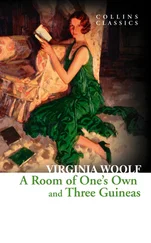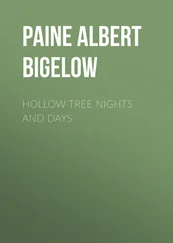Virginia Woolf - Night and Day
Здесь есть возможность читать онлайн «Virginia Woolf - Night and Day» — ознакомительный отрывок электронной книги совершенно бесплатно, а после прочтения отрывка купить полную версию. В некоторых случаях можно слушать аудио, скачать через торрент в формате fb2 и присутствует краткое содержание. Жанр: literature_20, foreign_prose, Зарубежные любовные романы, на английском языке. Описание произведения, (предисловие) а так же отзывы посетителей доступны на портале библиотеки ЛибКат.
- Название:Night and Day
- Автор:
- Жанр:
- Год:неизвестен
- ISBN:нет данных
- Рейтинг книги:3 / 5. Голосов: 1
-
Избранное:Добавить в избранное
- Отзывы:
-
Ваша оценка:
- 60
- 1
- 2
- 3
- 4
- 5
Night and Day: краткое содержание, описание и аннотация
Предлагаем к чтению аннотацию, описание, краткое содержание или предисловие (зависит от того, что написал сам автор книги «Night and Day»). Если вы не нашли необходимую информацию о книге — напишите в комментариях, мы постараемся отыскать её.
Night and Day — читать онлайн ознакомительный отрывок
Ниже представлен текст книги, разбитый по страницам. Система сохранения места последней прочитанной страницы, позволяет с удобством читать онлайн бесплатно книгу «Night and Day», без необходимости каждый раз заново искать на чём Вы остановились. Поставьте закладку, и сможете в любой момент перейти на страницу, на которой закончили чтение.
Интервал:
Закладка:
She turned to Denham for confirmation, and he corroborated her.
“It’s the ten minutes after a paper is read that proves whether it’s been a success or not,” he said. “If I were you, Rodney, I should be very pleased with myself.”
This commendation seemed to comfort Mr. Rodney completely, and he began to bethink him of all the passages in his paper which deserved to be called “suggestive.”
“Did you agree at all, Denham, with what I said about Shakespeare’s later use of imagery? I’m afraid I didn’t altogether make my meaning plain.”
Here he gathered himself together, and by means of a series of frog-like jerks, succeeded in bringing himself close to Denham.
Denham answered him with the brevity which is the result of having another sentence in the mind to be addressed to another person. He wished to say to Katharine: “Did you remember to get that picture glazed before your aunt came to dinner?” but, besides having to answer Rodney, he was not sure that the remark, with its assertion of intimacy, would not strike Katharine as impertinent. She was listening to what some one in another group was saying. Rodney, meanwhile, was talking about the Elizabethan dramatists.
He was a curious-looking man since, upon first sight, especially if he chanced to be talking with animation, he appeared, in some way, ridiculous; but, next moment, in repose, his face, with its large nose, thin cheeks and lips expressing the utmost sensibility, somehow recalled a Roman head bound with laurel, cut upon a circle of semi-transparent reddish stone. It had dignity and character. By profession a clerk in a Government office, he was one of those martyred spirits to whom literature is at once a source of divine joy and of almost intolerable irritation. Not content to rest in their love of it, they must attempt to practise it themselves, and they are generally endowed with very little facility in composition. They condemn whatever they produce. Moreover, the violence of their feelings is such that they seldom meet with adequate sympathy, and being rendered very sensitive by their cultivated perceptions, suffer constant slights both to their own persons and to the thing they worship. But Rodney could never resist making trial of the sympathies of any one who seemed favorably disposed, and Denham’s praise had stimulated his very susceptible vanity.
“You remember the passage just before the death of the Duchess?” he continued, edging still closer to Denham, and adjusting his elbow and knee in an incredibly angular combination. Here, Katharine, who had been cut off by these maneuvers from all communication with the outer world, rose, and seated herself upon the window-sill, where she was joined by Mary Datchet. The two young women could thus survey the whole party. Denham looked after them, and made as if he were tearing handfuls of grass up by the roots from the carpet. But as it fell in accurately with his conception of life that all one’s desires were bound to be frustrated, he concentrated his mind upon literature, and determined, philosophically, to get what he could out of that.
Katharine was pleasantly excited. A variety of courses was open to her. She knew several people slightly, and at any moment one of them might rise from the floor and come and speak to her; on the other hand, she might select somebody for herself, or she might strike into Rodney’s discourse, to which she was intermittently attentive. She was conscious of Mary’s body beside her, but, at the same time, the consciousness of being both of them women made it unnecessary to speak to her. But Mary, feeling, as she had said, that Katharine was a “personality,” wished so much to speak to her that in a few moments she did.
“They’re exactly like a flock of sheep, aren’t they?” she said, referring to the noise that rose from the scattered bodies beneath her.
Katharine turned and smiled.
“I wonder what they’re making such a noise about?” she said.
“The Elizabethans, I suppose.”
“No, I don’t think it’s got anything to do with the Elizabethans. There! Didn’t you hear them say, ‘Insurance Bill’?”
“I wonder why men always talk about politics?” Mary speculated. “I suppose, if we had votes, we should, too.”
“I dare say we should. And you spend your life in getting us votes, don’t you?”
“I do,” said Mary, stoutly. “From ten to six every day I’m at it.”
Katharine looked at Ralph Denham, who was now pounding his way through the metaphysics of metaphor with Rodney, and was reminded of his talk that Sunday afternoon. She connected him vaguely with Mary.
“I suppose you’re one of the people who think we should all have professions,” she said, rather distantly, as if feeling her way among the phantoms of an unknown world.
“Oh dear no,” said Mary at once.
“Well, I think I do,” Katharine continued, with half a sigh. “You will always be able to say that you’ve done something, whereas, in a crowd like this, I feel rather melancholy.”
“In a crowd? Why in a crowd?” Mary asked, deepening the two lines between her eyes, and hoisting herself nearer to Katharine upon the window-sill.
“Don’t you see how many different things these people care about? And I want to beat them down – I only mean,” she corrected herself, “that I want to assert myself, and it’s difficult, if one hasn’t a profession.”
Mary smiled, thinking that to beat people down was a process that should present no difficulty to Miss Katharine Hilbery. They knew each other so slightly that the beginning of intimacy, which Katharine seemed to initiate by talking about herself, had something solemn in it, and they were silent, as if to decide whether to proceed or not. They tested the ground.
“Ah, but I want to trample upon their prostrate bodies!” Katharine announced, a moment later, with a laugh, as if at the train of thought which had led her to this conclusion.
“One doesn’t necessarily trample upon people’s bodies because one runs an office,” Mary remarked.
“No. Perhaps not,” Katharine replied. The conversation lapsed, and Mary saw Katharine looking out into the room rather moodily with closed lips, the desire to talk about herself or to initiate a friendship having, apparently, left her. Mary was struck by her capacity for being thus easily silent, and occupied with her own thoughts. It was a habit that spoke of loneliness and a mind thinking for itself. When Katharine remained silent Mary was slightly embarrassed.
“Yes, they’re very like sheep,” she repeated, foolishly.
“And yet they are very clever – at least,” Katharine added, “I suppose they have all read Webster.”
“Surely you don’t think that a proof of cleverness? I’ve read Webster, I’ve read Ben Jonson, but I don’t think myself clever – not exactly, at least.”
“I think you must be very clever,” Katharine observed.
“Why? Because I run an office?”
“I wasn’t thinking of that. I was thinking how you live alone in this room, and have parties.”
Mary reflected for a second.
“It means, chiefly, a power of being disagreeable to one’s own family, I think. I have that, perhaps. I didn’t want to live at home, and I told my father. He didn’t like it… But then I have a sister, and you haven’t, have you?”
“No, I haven’t any sisters.”
“You are writing a life of your grandfather?” Mary pursued.
Katharine seemed instantly to be confronted by some familiar thought from which she wished to escape. She replied, “Yes, I am helping my mother,” in such a way that Mary felt herself baffled, and put back again into the position in which she had been at the beginning of their talk. It seemed to her that Katharine possessed a curious power of drawing near and receding, which sent alternate emotions through her far more quickly than was usual, and kept her in a condition of curious alertness. Desiring to classify her, Mary bethought her of the convenient term “egoist.”
Читать дальшеИнтервал:
Закладка:
Похожие книги на «Night and Day»
Представляем Вашему вниманию похожие книги на «Night and Day» списком для выбора. Мы отобрали схожую по названию и смыслу литературу в надежде предоставить читателям больше вариантов отыскать новые, интересные, ещё непрочитанные произведения.
Обсуждение, отзывы о книге «Night and Day» и просто собственные мнения читателей. Оставьте ваши комментарии, напишите, что Вы думаете о произведении, его смысле или главных героях. Укажите что конкретно понравилось, а что нет, и почему Вы так считаете.












